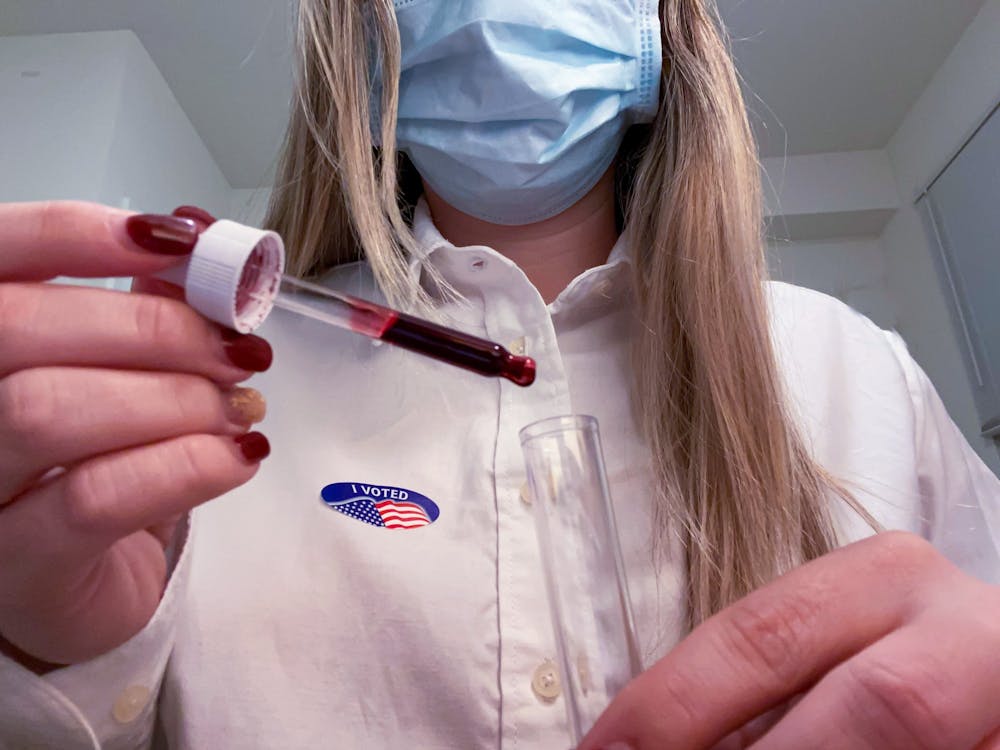There are three certainties in life: death, taxes, and college kids finding reasons not to vote. Aside from the utter inconvenience it is to vote in the United States in a normal year, let alone in a pandemic, young people have also been fed up with the two-party system consistently spewing out candidates who on the surface may contrast and spar, but fundamentally still carry out ineffective politics. This year, to many young people, it appears to be more of the same.
Although Biden and Trump are constantly at odds, with both launching direct verbal attacks frequently, it is clear that neither candidate has any radically different plans for issues like the wealth gap, healthcare, the lagging education system, over-policing, and crumbling infrastructure. With there being very little fundamental difference in these two candidates' stances, it is perfectly understandable that at first glance, so many young people see no real reason to vote. However, there is a stark contrast on one important issue: science.
For anyone with a rudimentary understanding of science, it is quite obvious how Biden outclasses Trump in his understanding and concern towards COVID-19 and climate change. With regards to COVID-19, he would enforce mask-wearing policies and proceed with more caution regarding reopenings. Additionally, Biden’s climate change proposals will have the U.S. rejoin the Paris Climate Accord, push for 100% clean energy by 2050, and provide jobs for working Americans in the process.
These two policy differences alone are reason enough for why many nontraditional Democratic voters are backing Biden. However, there is a more unsung way that Biden’s trust in science will have a paramount impact on American health, standard of living, and standing in the world, and it is something that every member of the Penn STEM community should support. In his first term, Trump has done everything in his power to destroy America’s standing as a leader in science. He has appointed multiple people to government agencies who directly oppose those agencies’ missions, such as with the EPA and Department of Energy. In addition, in each of the past four years, Trump has proposed funding cuts to almost every government basic research agency.
Cutting science funding is one of the easiest actions Washington can take; it often has no immediate negative consequences. However, many recent cases have shown the importance of consistent government funding in science both at home and globally. Cuts in funding to Fermilab gave the Swiss at CERN the glory of discovering the Higgs boson, when it should have been the U.S. Trump completely cut the pandemic early response program just three months before COVID-19 broke out in Wuhan, something that obviously would have come in handy during the current pandemic. And if a Baylor University research team received the funding they were begging Congress for, we might have had a coronavirus vaccine years ago. There are just a few of the many scientific advancements that could have occurred if the funding was there.
Unlike Trump, Biden supports funding for both basic and translational science research, and historically, he has backed it up. Biden led the Cancer Moonshot task force as Vice President, an initiative focused on an organized approach at ending cancer. He plans to invest $300 billion in technology and research and development, and $400 billion over the next ten years in clean energy research. International STEM students will also benefit, with Biden vowing to exempt international PhD graduates from any visa caps.
Biden’s trust in science will certainly have an immediate impact on the US’s response to COVID-19 and climate change, but equally as important, Biden will start to rebuild the United States' passion and determination for scientific innovation. And to Penn STEM students and faculty: who knows, maybe funding for a future research proposal of yours could be affected by the results of this election.
MATTHEW LIU is a first-year student in the College studying biochemistry.









